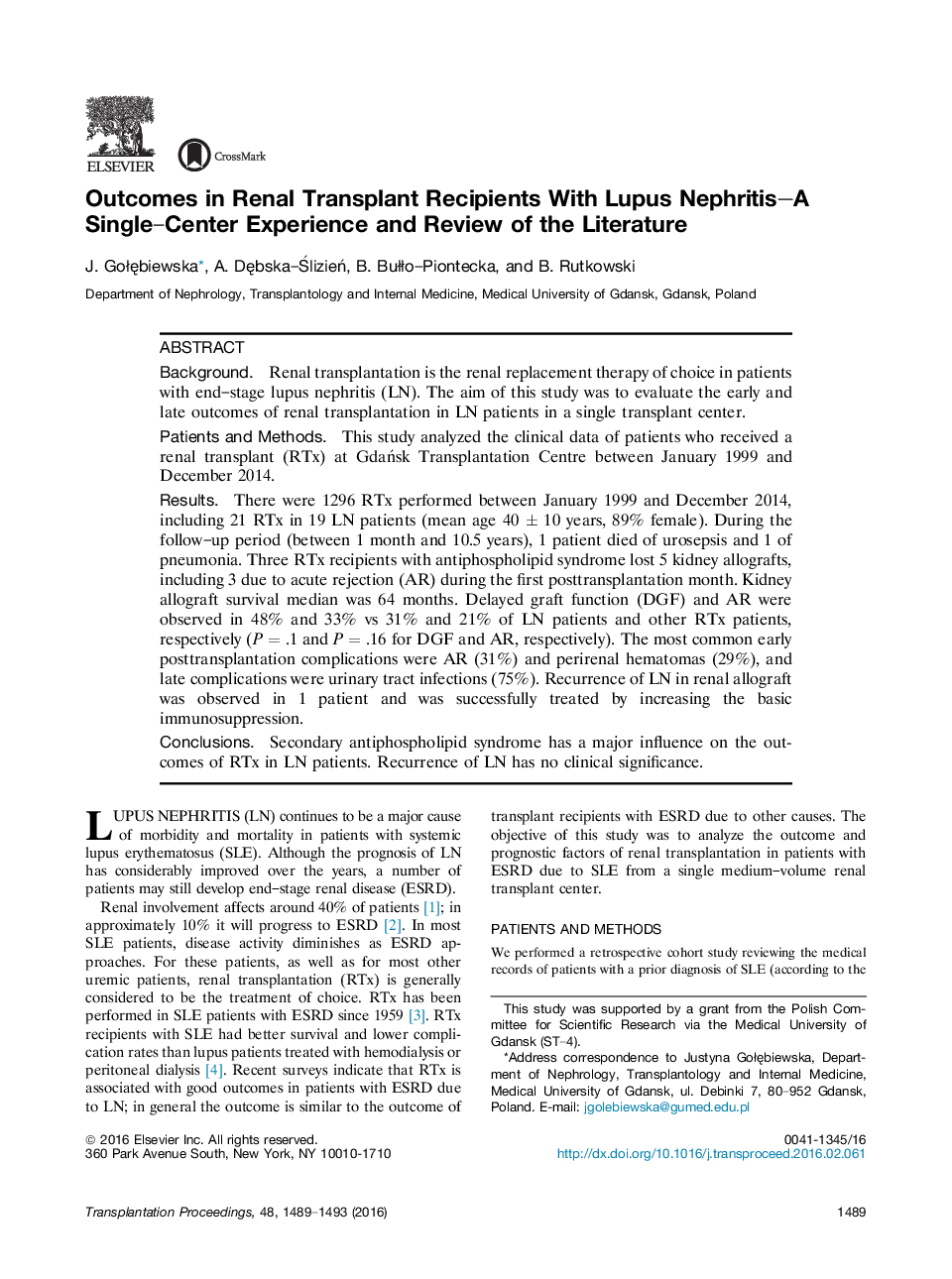| Article ID | Journal | Published Year | Pages | File Type |
|---|---|---|---|---|
| 4256059 | Transplantation Proceedings | 2016 | 5 Pages |
•Secondary antiphospholipid syndrome has a major influence on the outcomes of renal transplantation.•Recurrence of lupus nephritis has no clinical significance.•Renal transplantation should be a renal replacement therapy of choice with end-stage renal disease caused by lupus nephritis.
BackgroundRenal transplantation is the renal replacement therapy of choice in patients with end–stage lupus nephritis (LN). The aim of this study was to evaluate the early and late outcomes of renal transplantation in LN patients in a single transplant center.Patients and MethodsThis study analyzed the clinical data of patients who received a renal transplant (RTx) at Gdańsk Transplantation Centre between January 1999 and December 2014.ResultsThere were 1296 RTx performed between January 1999 and December 2014, including 21 RTx in 19 LN patients (mean age 40 ± 10 years, 89% female). During the follow–up period (between 1 month and 10.5 years), 1 patient died of urosepsis and 1 of pneumonia. Three RTx recipients with antiphospholipid syndrome lost 5 kidney allografts, including 3 due to acute rejection (AR) during the first posttransplantation month. Kidney allograft survival median was 64 months. Delayed graft function (DGF) and AR were observed in 48% and 33% vs 31% and 21% of LN patients and other RTx patients, respectively (P = .1 and P = .16 for DGF and AR, respectively). The most common early posttransplantation complications were AR (31%) and perirenal hematomas (29%), and late complications were urinary tract infections (75%). Recurrence of LN in renal allograft was observed in 1 patient and was successfully treated by increasing the basic immunosuppression.ConclusionsSecondary antiphospholipid syndrome has a major influence on the outcomes of RTx in LN patients. Recurrence of LN has no clinical significance.
